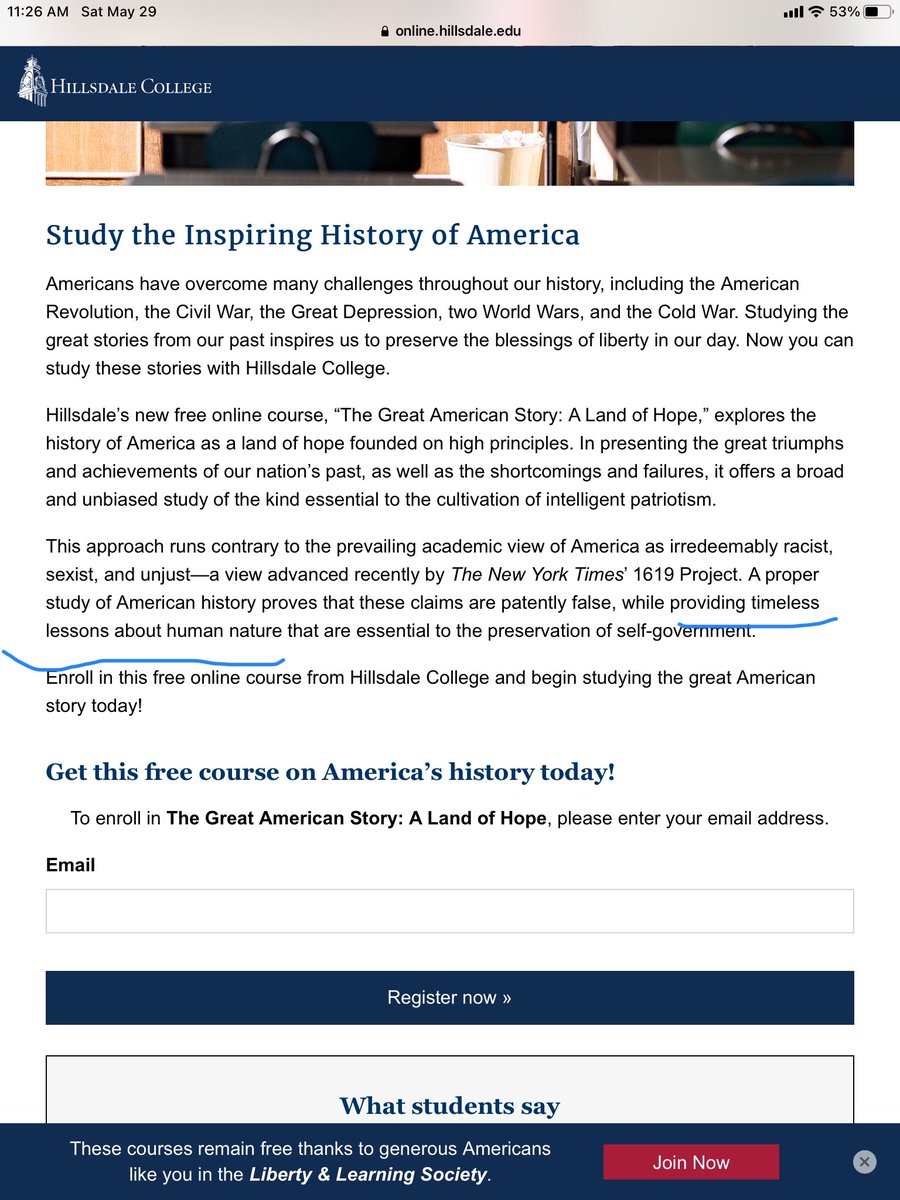
A few thoughts on McConnell's comments and some other criticism I have seen recently about the 1619 Project and other recent works that seek to reckon with slavery and white supremacy. /1
https://twitter.com/therecount/status/1400128482546532355
I’m not sure why he frames this interpretation as “trying to completely denigrate and downgrade” U.S. history. It reminds me of the view expressed here that “the prevailing academic view of America” is “irredeemably racist, sexist, and unjust.” /2 

Historical interpretations--including the 1619 Project--can and should be debated. But seeking to reframe--or synthesize a lot of scholarship that reframes--U.S. history as being fundamentally shaped by slavery and white supremacy is not an act of "denigration."/3
This sort of moralization calls to mind Gordon Wood's recent essay in which he thought it worth pointing out that, in Wood's view, Alan Taylor "dislikes" Thomas Jefferson. /5
In my experience, most historians don't think in terms of "liking" or "denigrating" their subjects. We try to explain why the people, the social movements, the events, and so on, that we study matter and, sometimes, how they helped condition the present. /6
Personally, I have "liked" some of the people I have studied whose actions I find odious. The papers of J. B. Matthews, the anticommunist crusader, reveal a person who appears, in his correspondence with his friends, to be charming and fun, always up for a dinner party. /7
Leonard Read, another person I write about critically, was a gourmet cook, debonair, and an extremely effective essayist. I don't doubt his sincerity or commitment to his worldview. I found it extremely important to engage with his ideas seriously, which I tried to do. /8
It is inarguable, I think, that slavery and white supremacy have fundamentally shaped U.S. history. There are many ways of explaining how they did so, and I took the 1619 Project to be one such framing effort, aimed at a popular audience./9
Having said this, I think we can circle back to McConnell's comments. He doesn't specify what the "original sin" that we "put behind us" by fighting the Civil War was. Presumably he means slavery and white supremacy. But the end of the Civil War didn't close the book on them. /10
I took it to be one of the goals of that effort precisely to challenge the thinking, which McConnell appears to be implying, that the Civil War put these issues in the rear-view mirror./11
McConnell implicitly admits as much when he skips over the entire Jim Crow period in his narration of significant dates in U.S. history. It comes up only when he mentions the 1965 Voting Rights Act, which was necessary because the Civil War didn't put racism "behind us."/12
And to give credit where it is due, good for McConnell for saying, in what I took to be an implicit rebuke to the state governments that are trying dictate curricula, that government shouldn't dictate how history is taught./13
• • •
Missing some Tweet in this thread? You can try to
force a refresh








